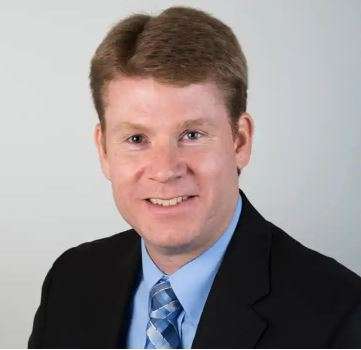
HUTCHINSON, Kan. — Last week Governor Laura Kelly line-item vetoed a proviso in the omnibus bill that would have stopped 340B contract pharmacy protections from being enacted.
“Had the proviso remained in the omnibus bill it would have negatively impacted community health centers like PrairieStar, rural hospitals, community pharmacies and most importantly, the patients they serve,” PrairieStar CEO Bryant Anderson said.
According to Anderson, contract pharmacy protections weren’t necessary until fairly recently. Since congress enacted the 340B Drug Pricing Program in 1992, covered entities (rural hospitals and community health centers) have been able to partner with local independent pharmacies through contract pharmacy arrangements to ensure that individuals have access to affordable medications.
These partnerships take place under the 340B Drug Pricing Program which requires drug manufacturers to provide outpatient medications to covered entities at significantly reduced prices resulting in savings. Covered entities use the savings from the Program to not only provide affordable medications, but comprehensive health services to millions of individuals as well.
In the fall 2020, the pharmaceutical industry began interfering in covered entity partnerships with pharmacies. The pharmaceutical industry sought to protect profits by placing pricing restrictions on contract pharmacy arrangements. The restrictions prevent covered entities from partnering with independent pharmacies to deliver affordable drugs to patients where they live, work and play, which has necessitated the need for contract pharmacy protections.
“After over 30 years with no issues, big Pharma effectively made-up new rules on their own, using the cover of the COVID response to begin dismantling contract pharmacy arrangements,” Anderson said. According to Anderson there are now approximately 30 drug manufacturers that place illegal pricing restrictions on contract pharmacy arrangements, harming covered entities and their patients.
In response to the pharmaceutical industry’s work on the 340B program, Anderson introduced legislation to protect contract pharmacy arrangements with the help of Senators Mark Steffen, MD from Reno County, and Caryn Tyson from Linn County, but it never received a hearing.
Deploying a new strategy devised by Senator Tyson, Anderson worked with Senators John Doll from Garden City, Steffen, and Representative Michael Murphy from Reno County to amend 340B protections onto the state budget bills in both the house and senate. During the floor debates in their respective chambers, Representative Murphy and Senator Steffen defended the 340B proviso and it passed in both chambers with overwhelming majorities, remaining in the final version of the state budget bill.
Even though the 340B proviso was part of the state budget bill, the fight wasn’t over. Working with pharmaceutical industry lobbyists, house leadership attached a proviso to the omnibus bill to delay the 340B proviso in the state budget bill. Had it been signed in to law by the governor it would have stopped the 340B contract pharmacy protections from ever coming to fruition. However, the governor line-item vetoed house leadership’s proviso and the contract pharmacy protections have now become law.
While Anderson led the charge for contract pharmacy protections, he readily admits overcoming the pharmaceutical industry was a team effort. Rural hospital and community health center CEOs and independent pharmacy owners were able to effectively communicate to legislators and the governor just how important 340B contract pharmacy protections are to ensuring Kansans have access to affordable medications and healthcare services.
“Prevailing over big Pharma in the legislative process isn’t easy and rarely happens. I am just thankful that we had a group of legislators and a governor that were willing to put Kansans before big Pharma greed,” Anderson said.
CLICK HERE to download the Hutch Post mobile app.
CLICK HERE to sign up for the daily Hutch Post email news update.





